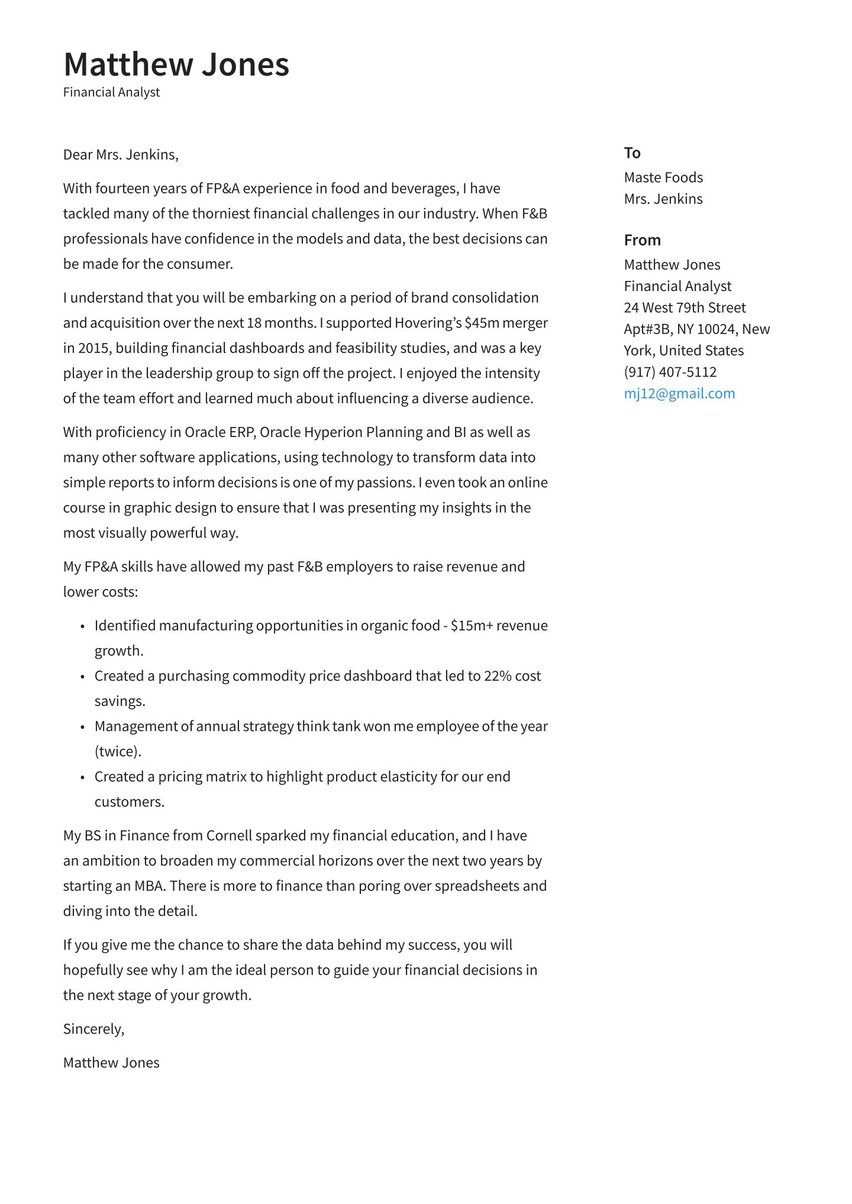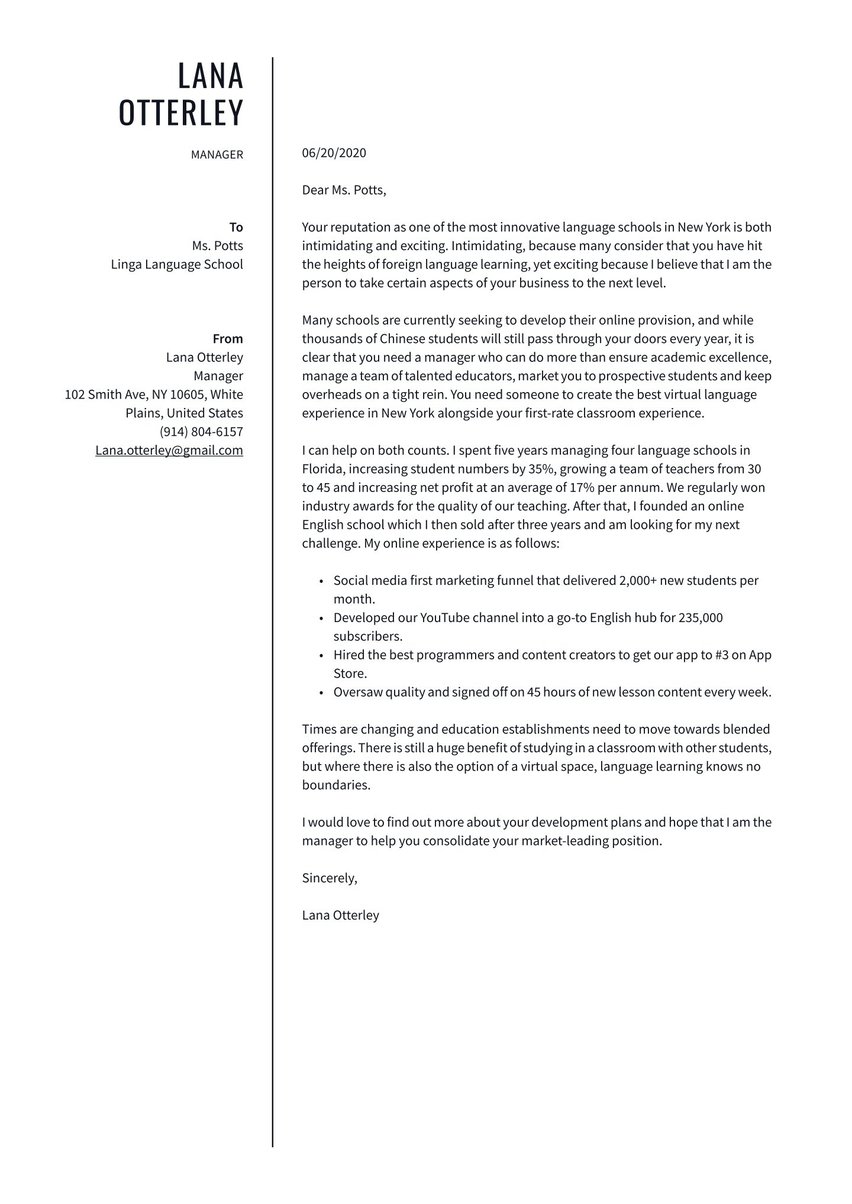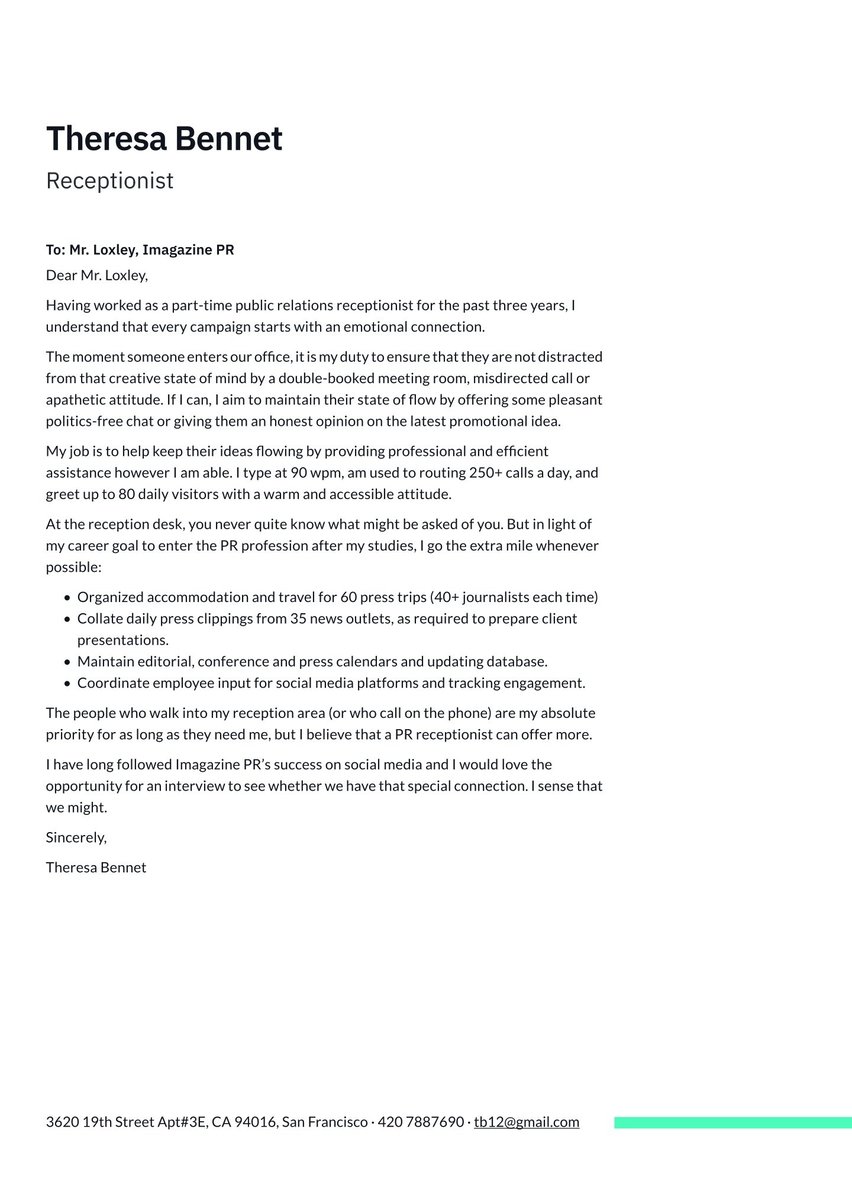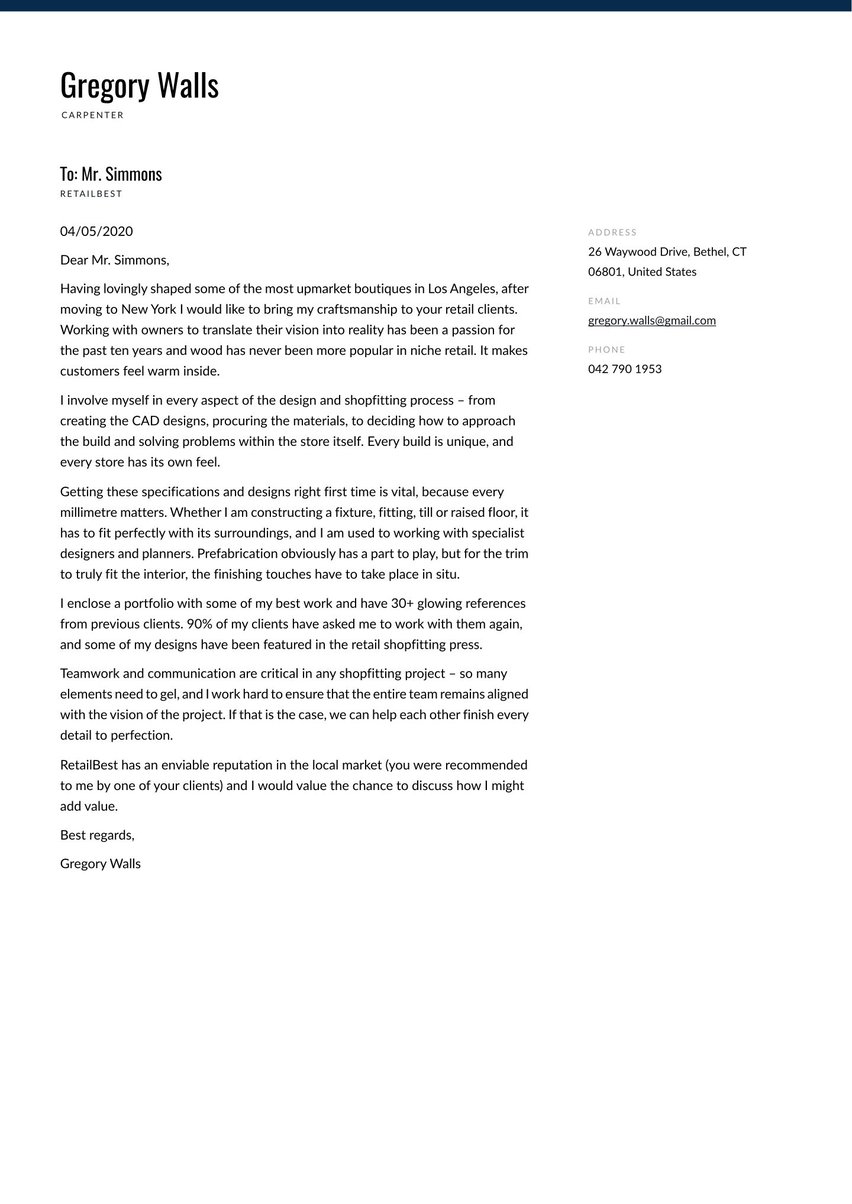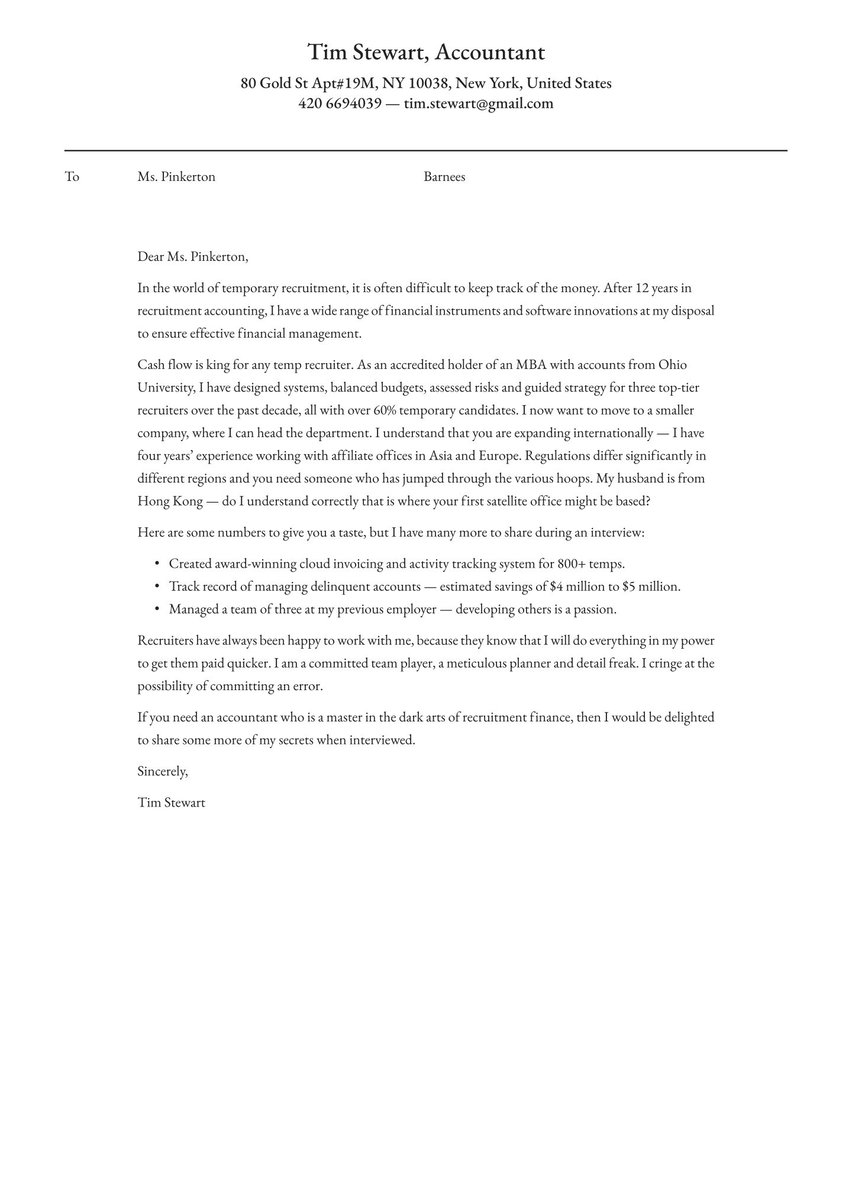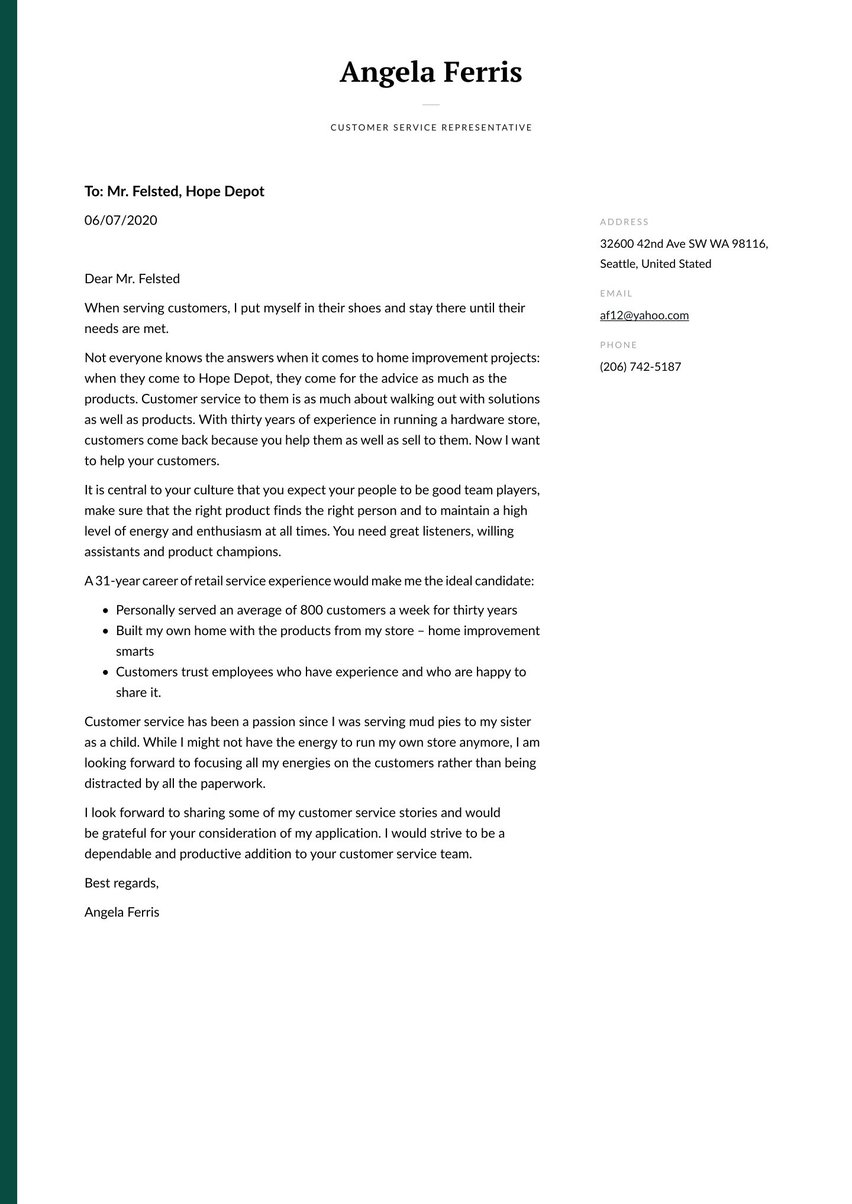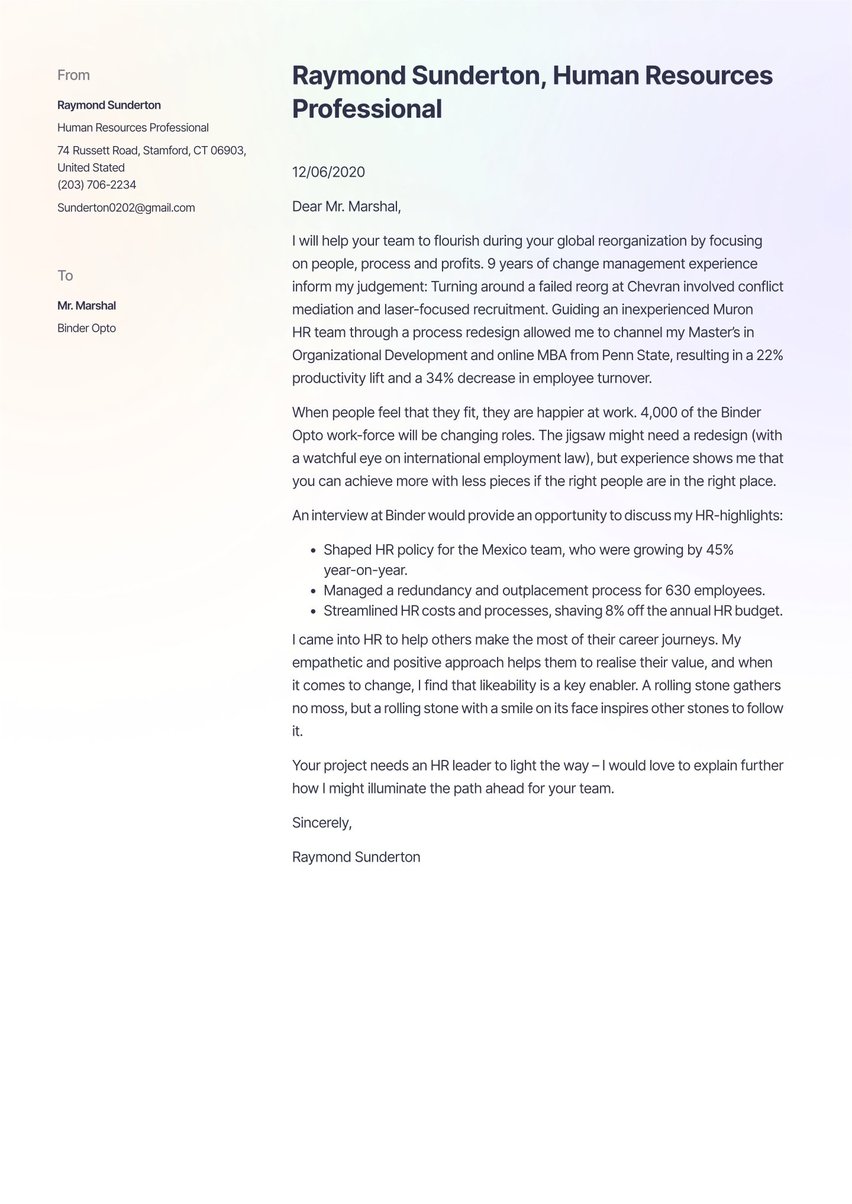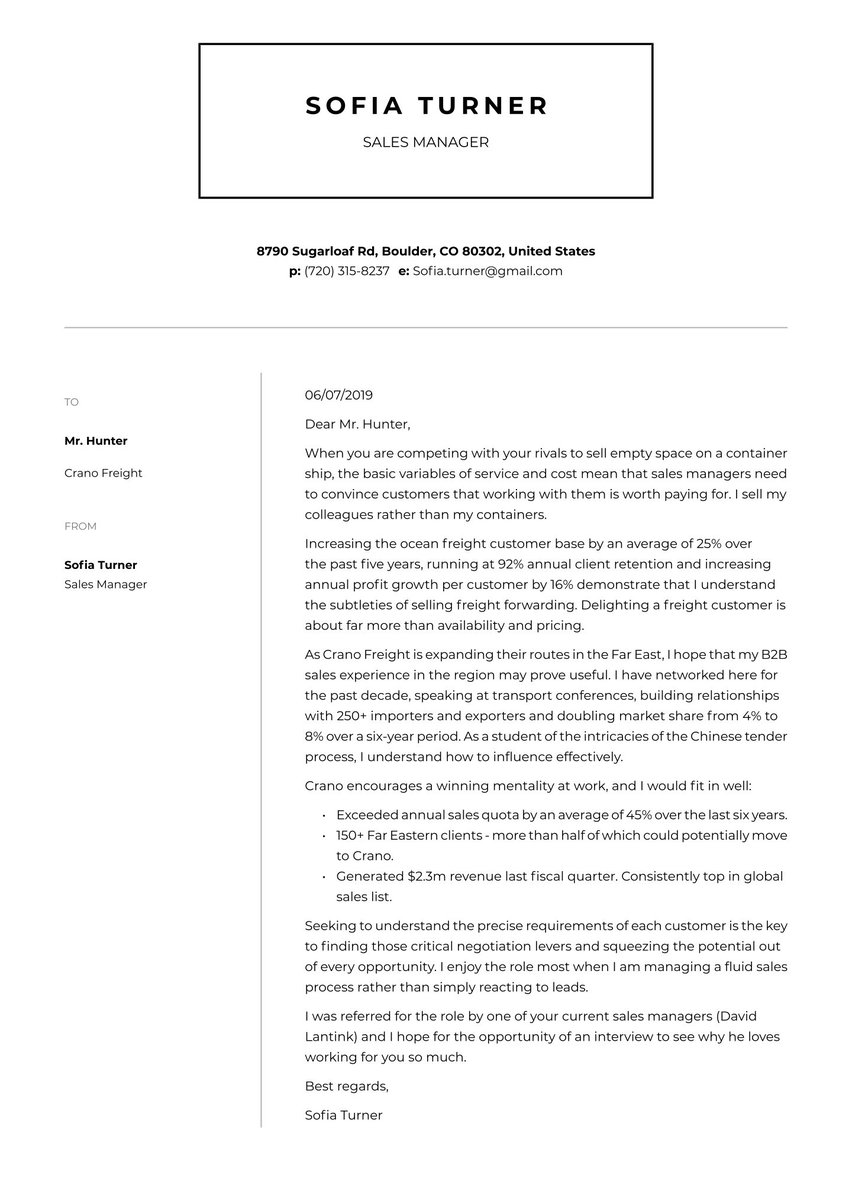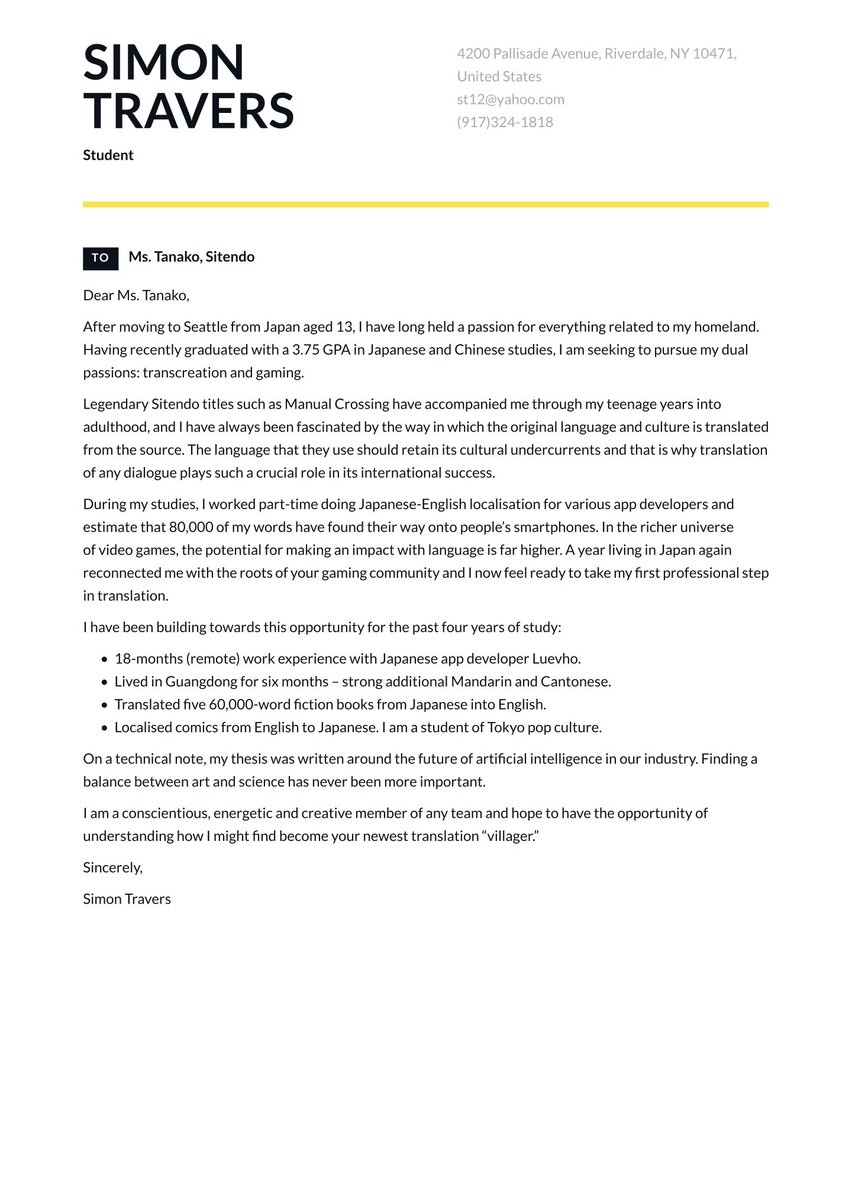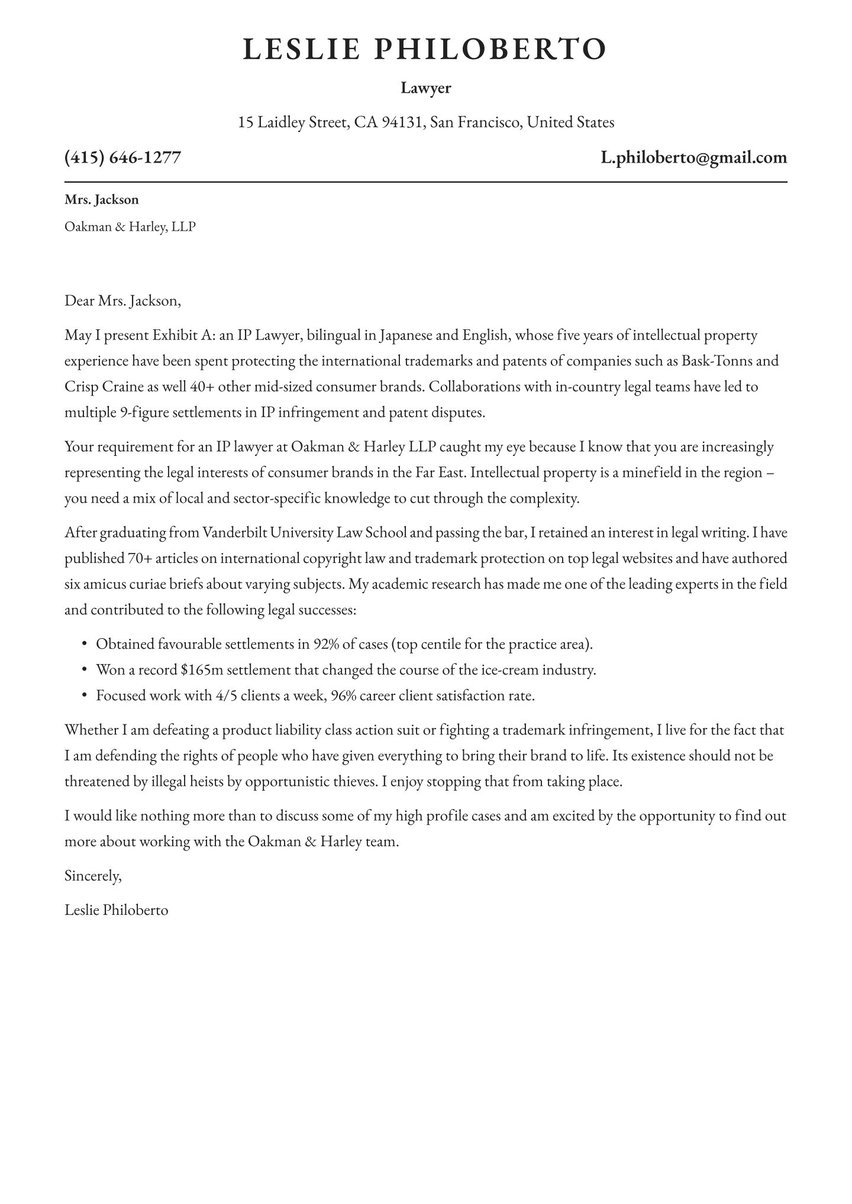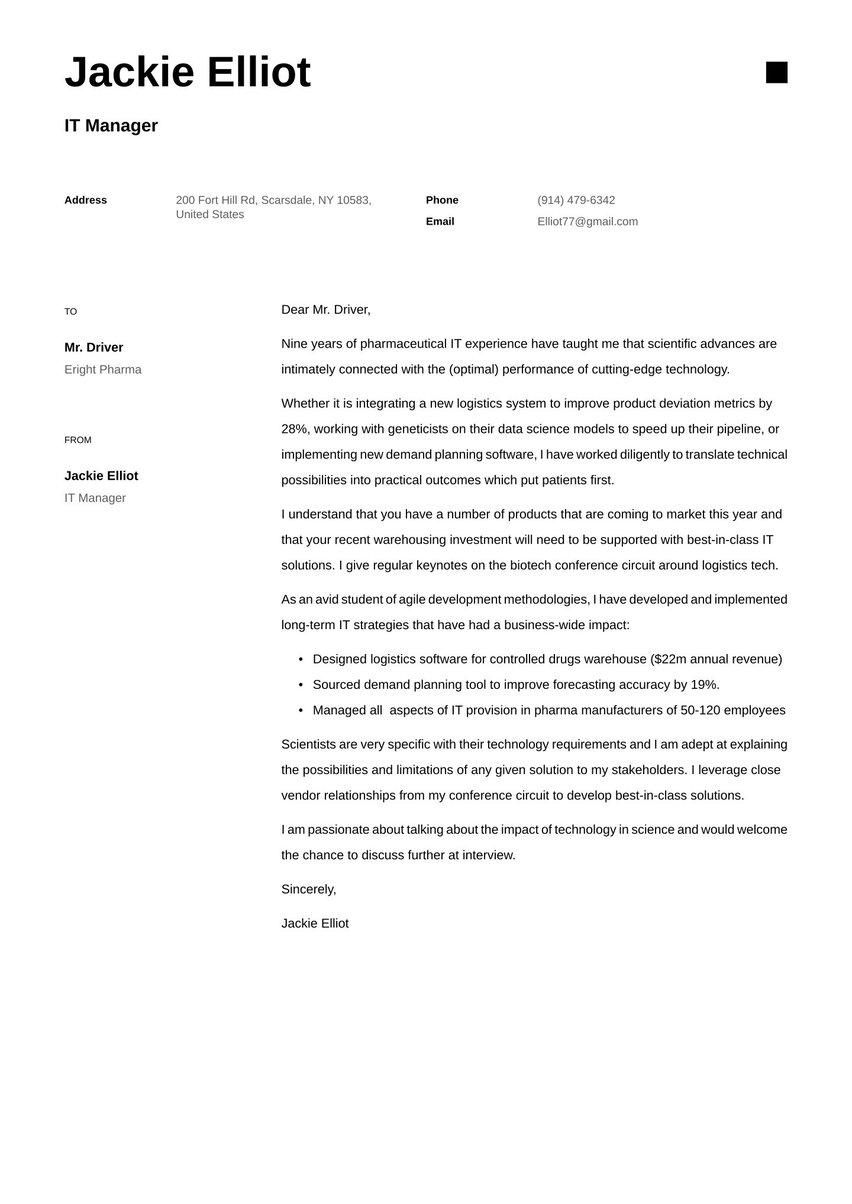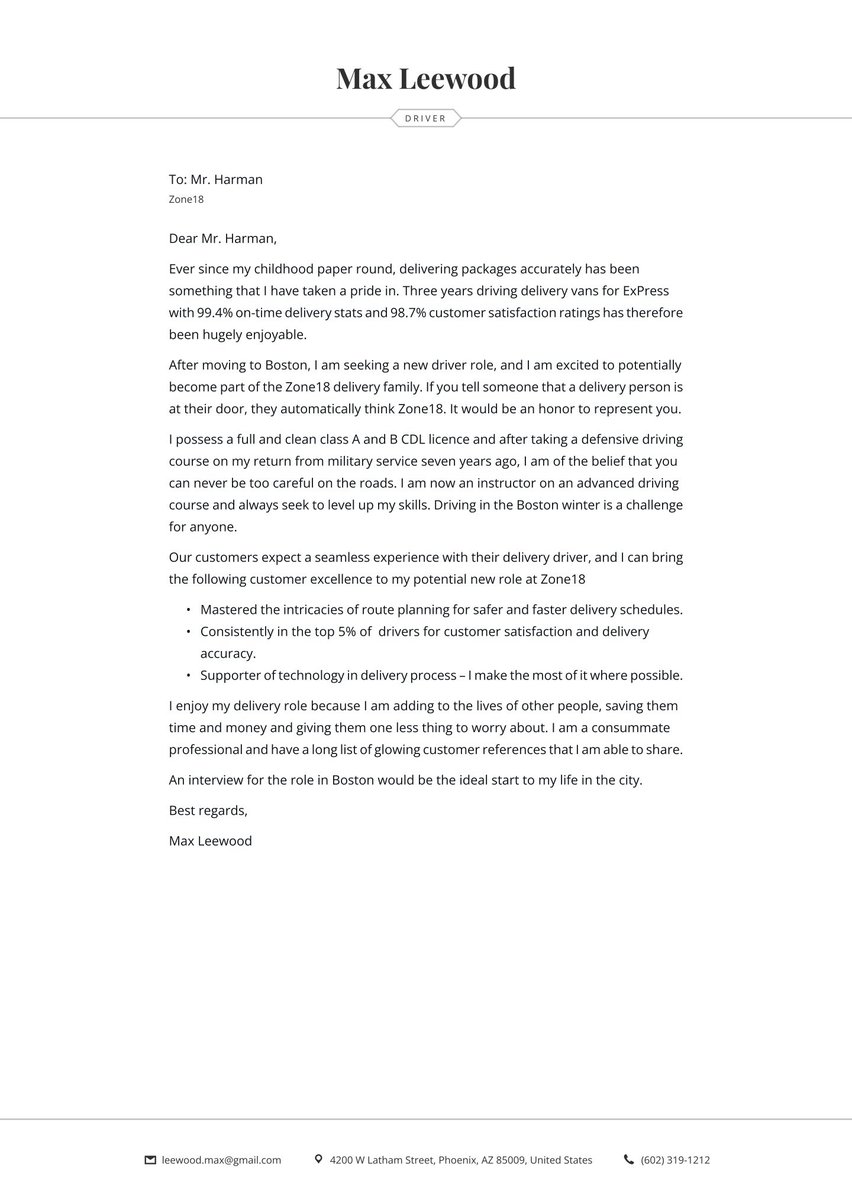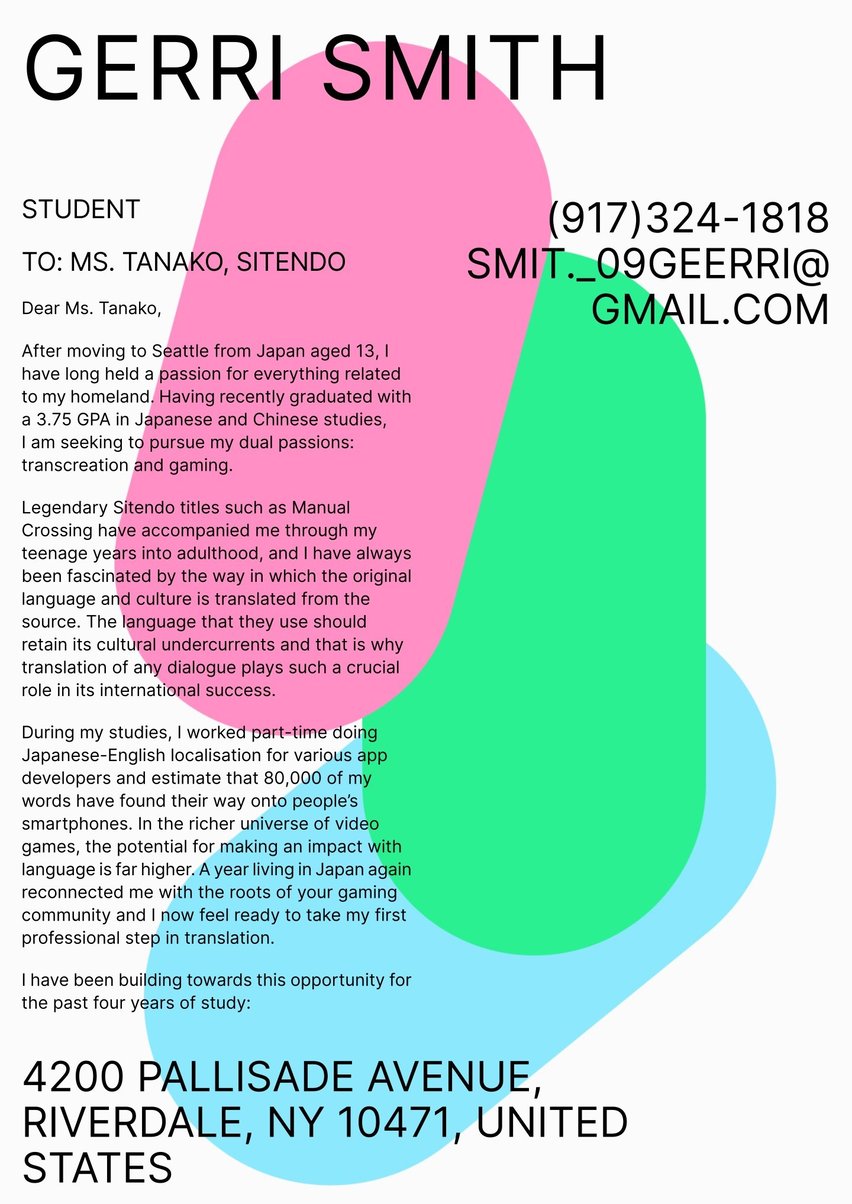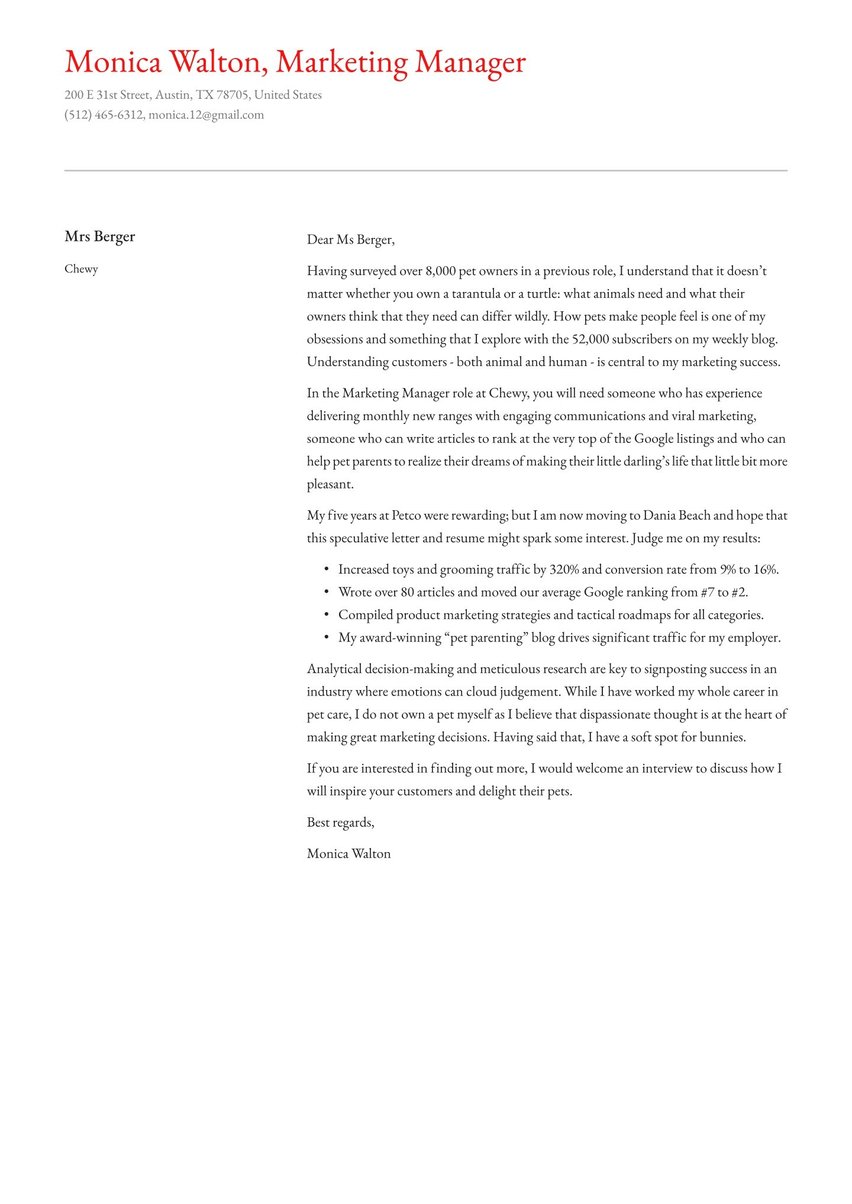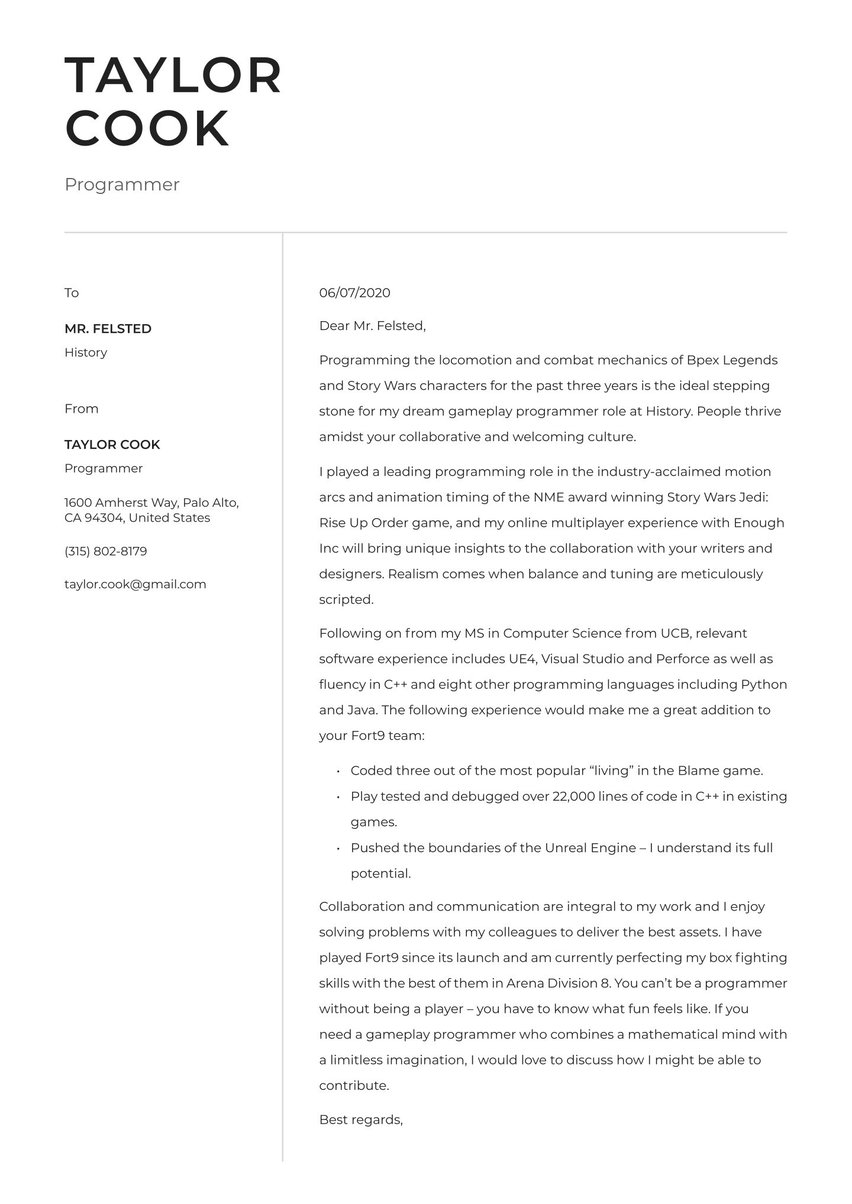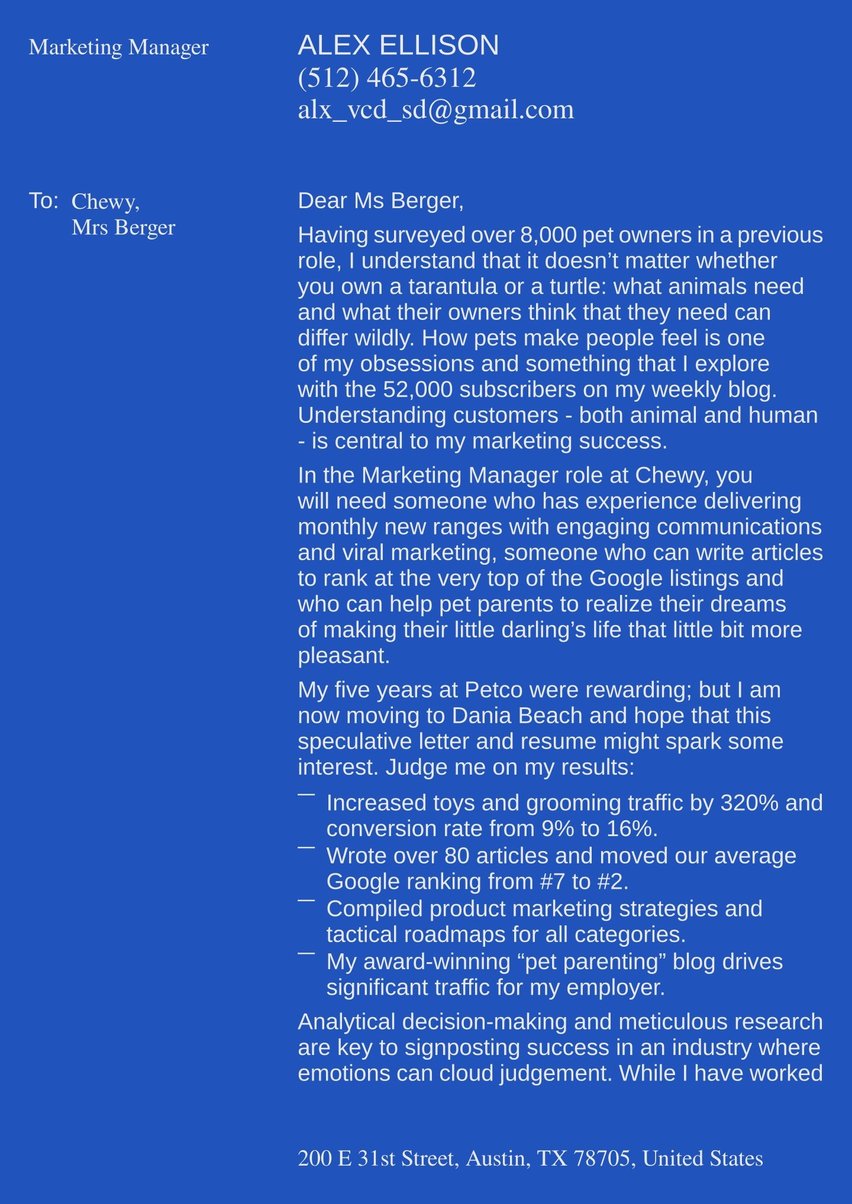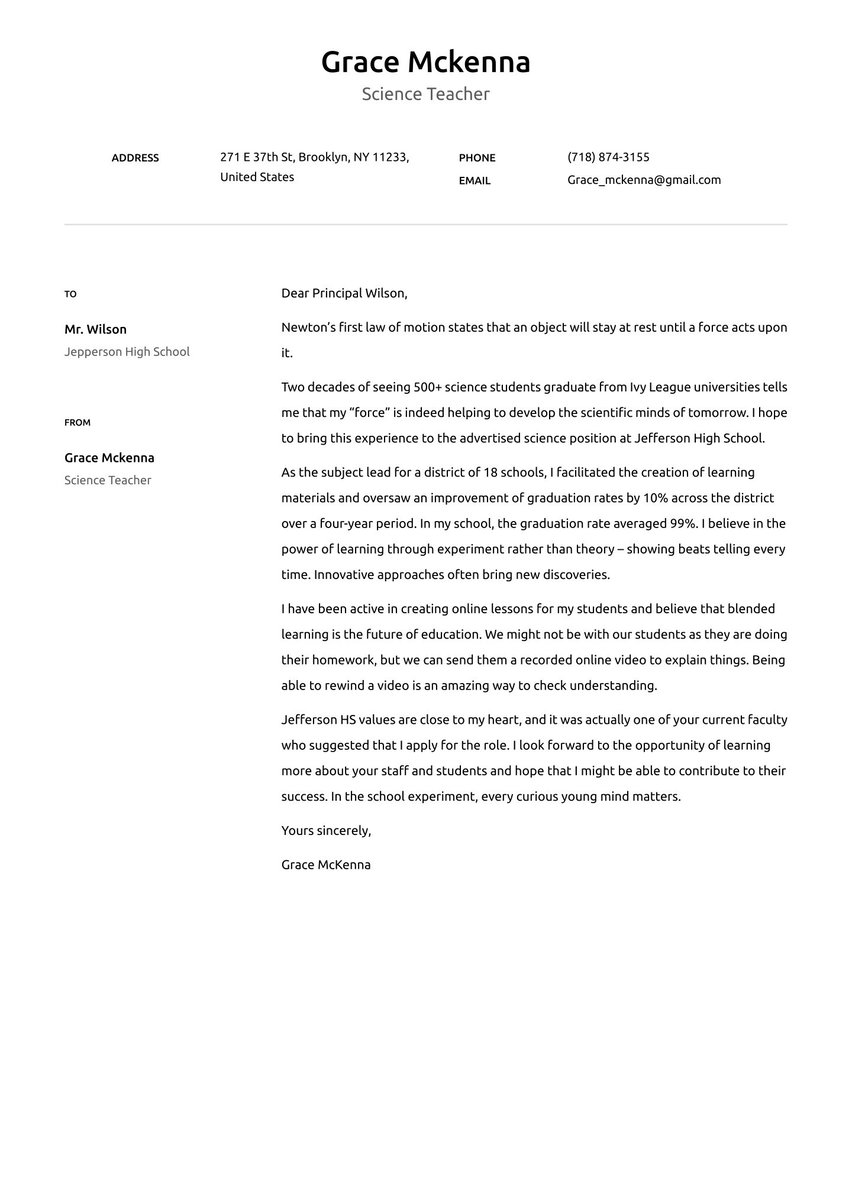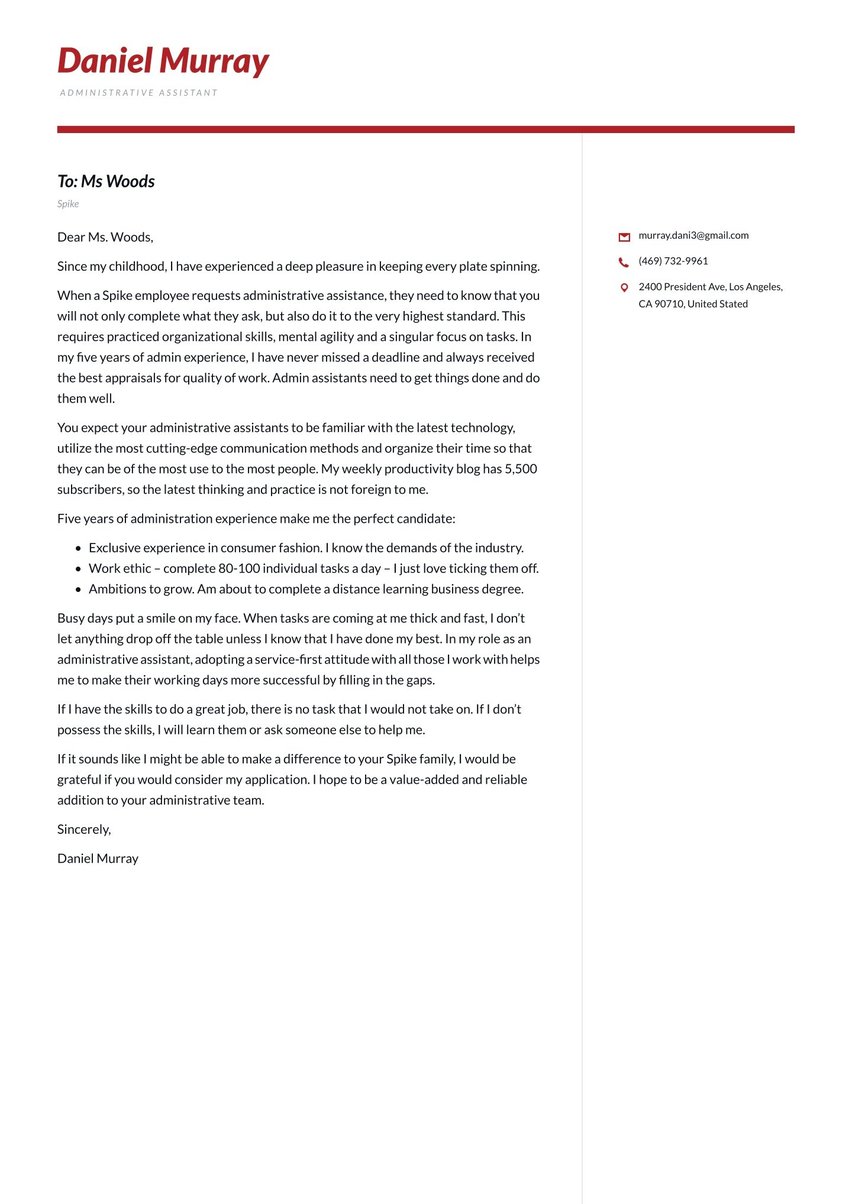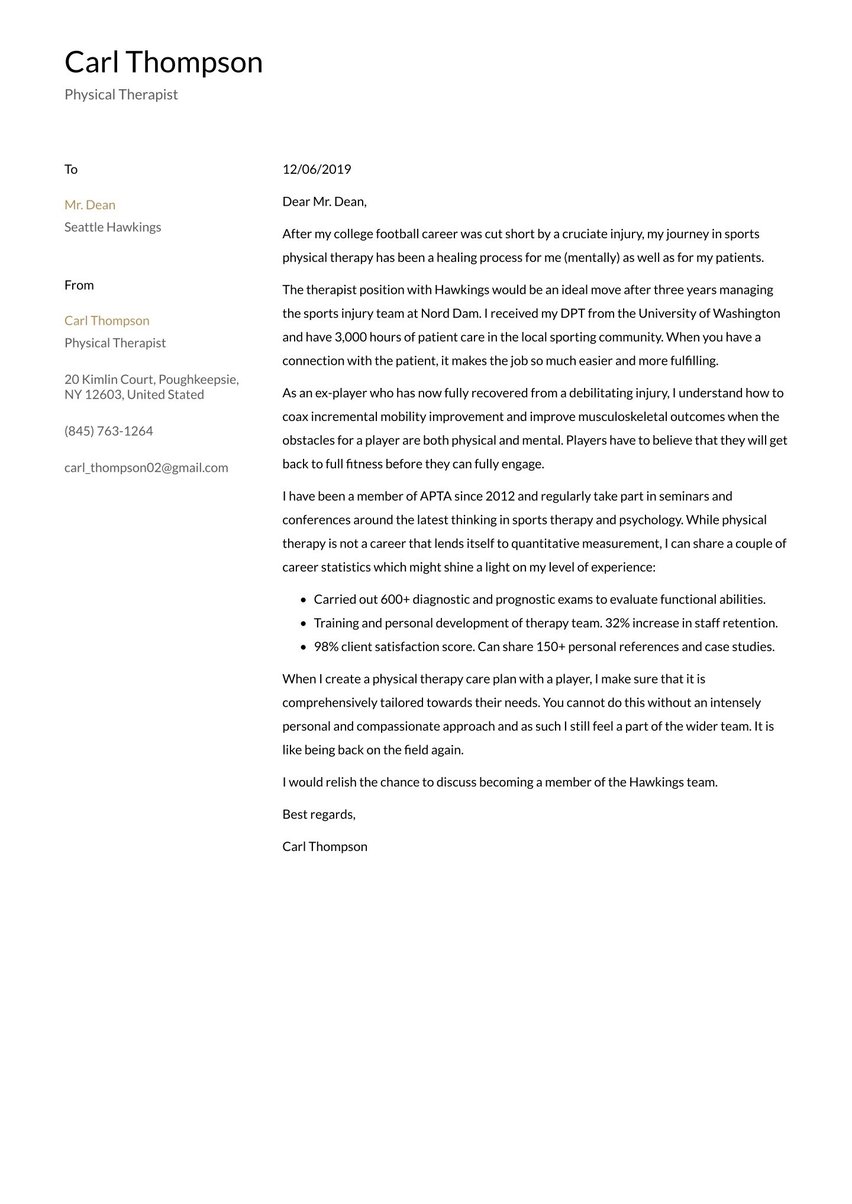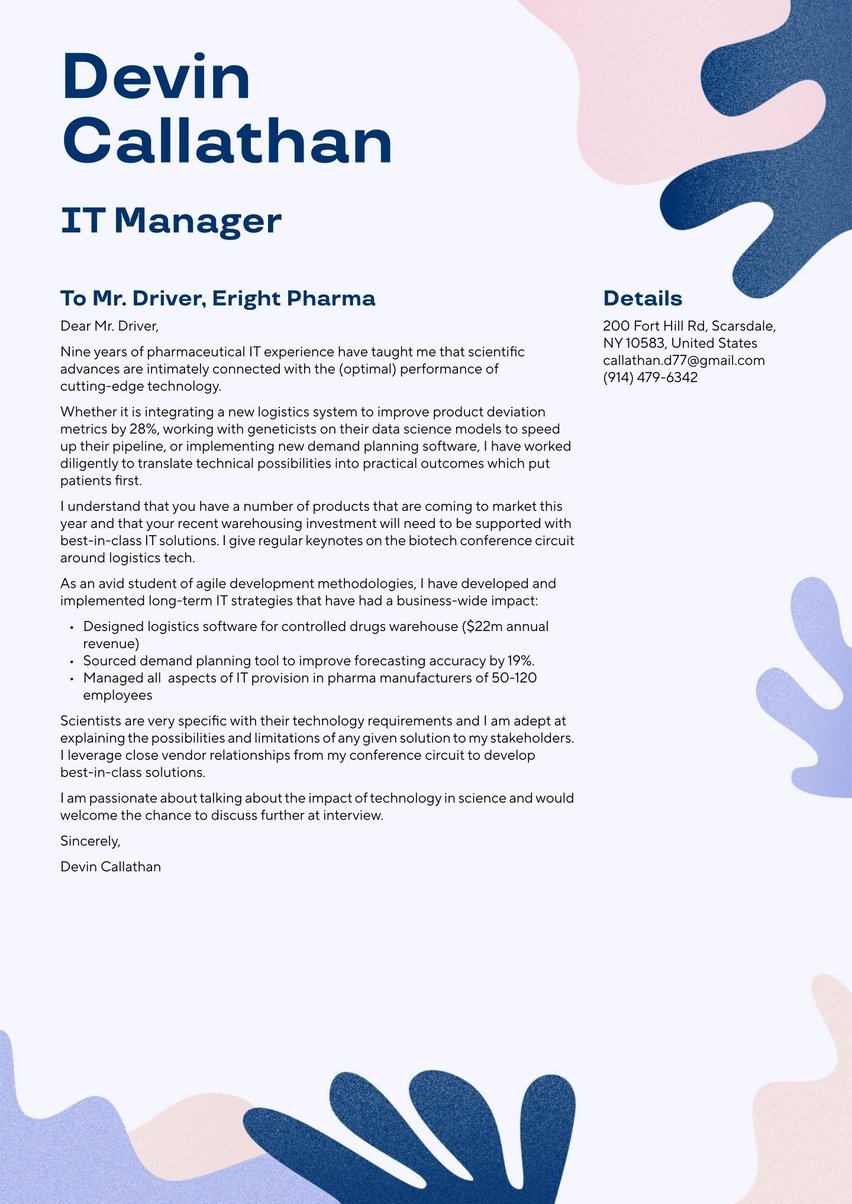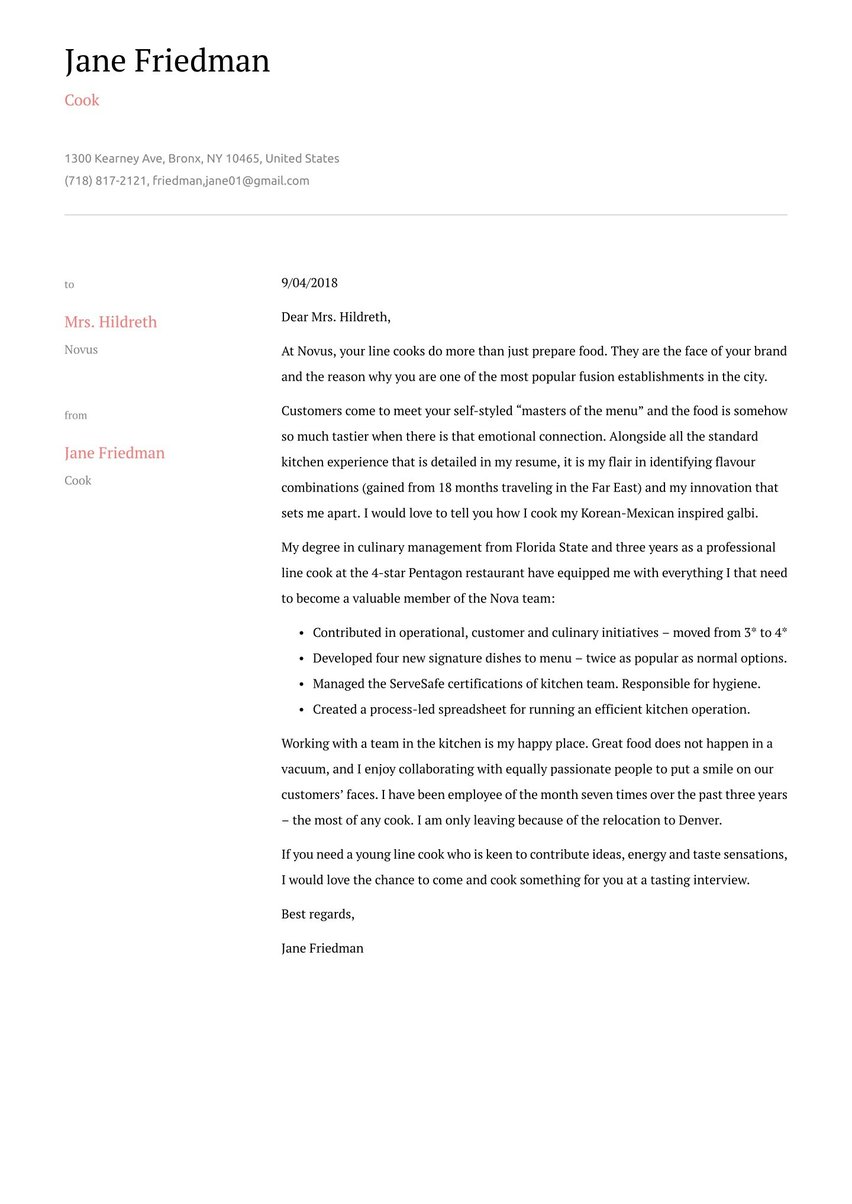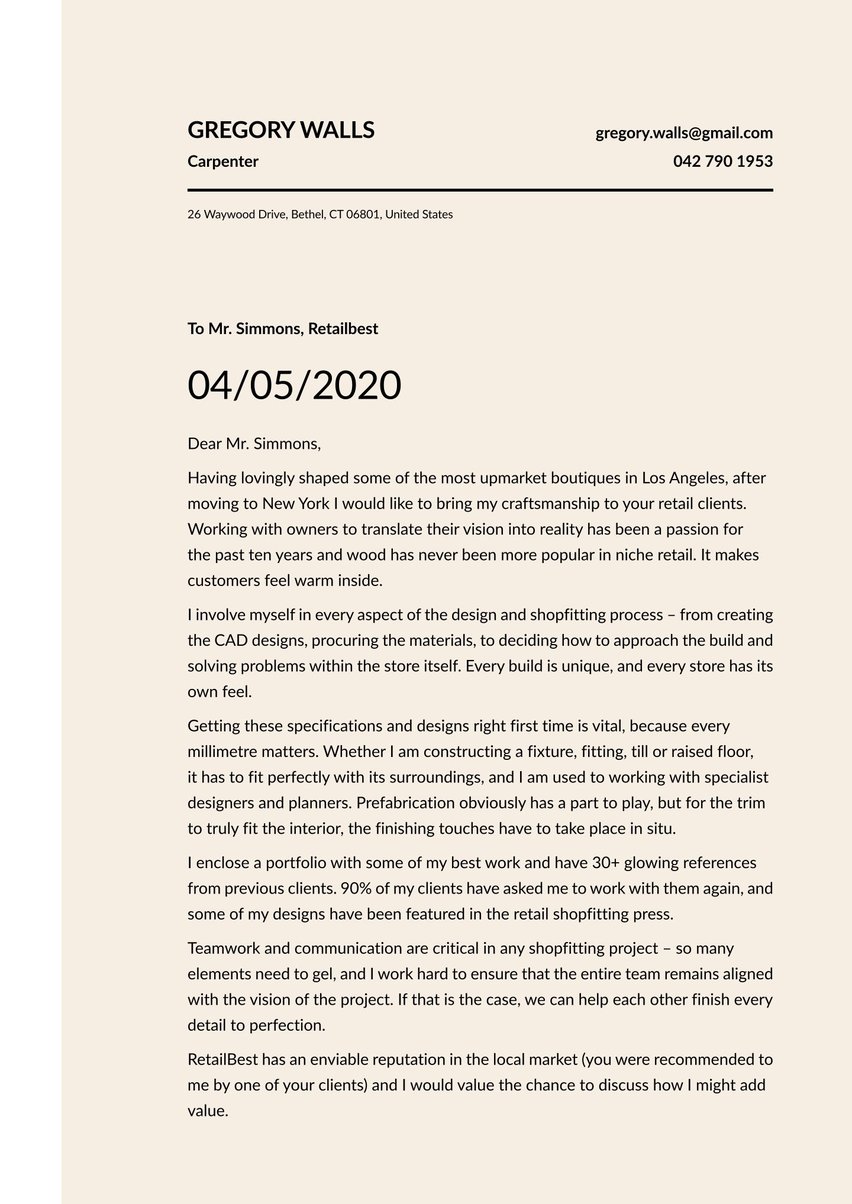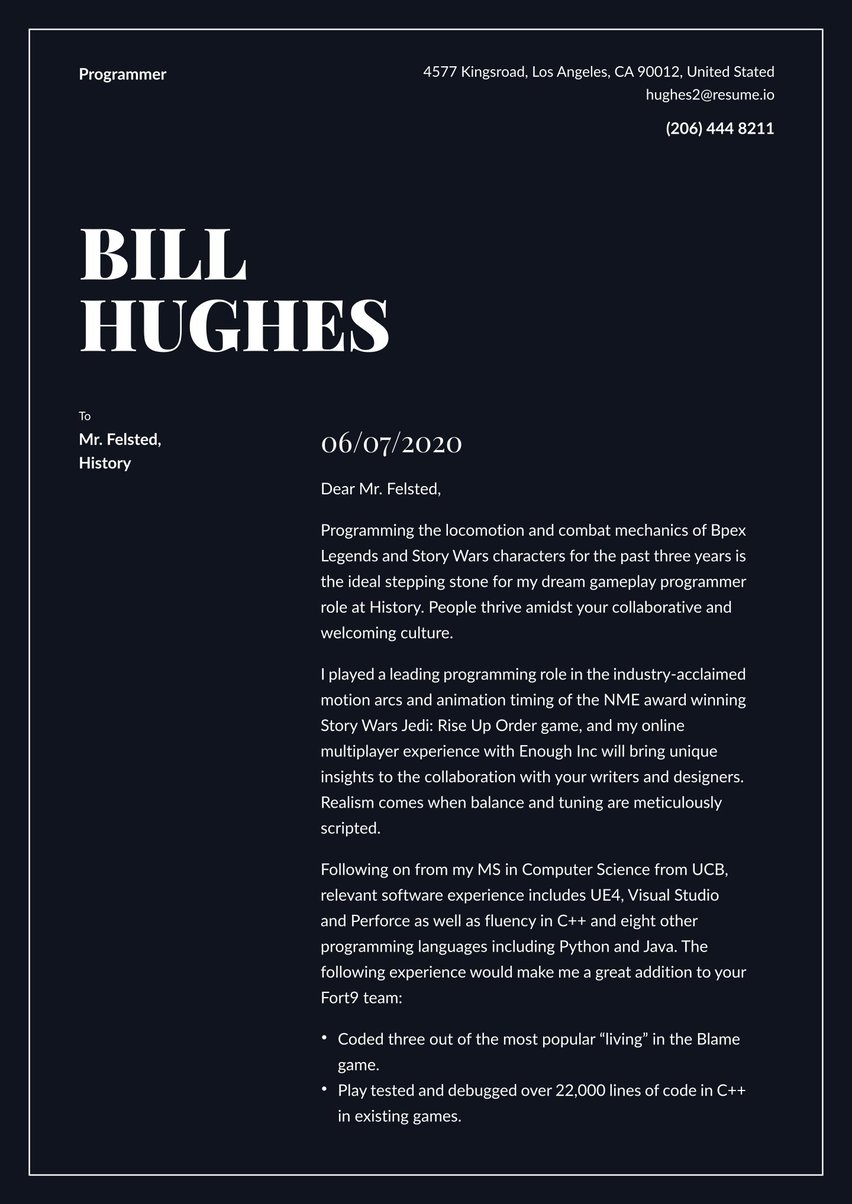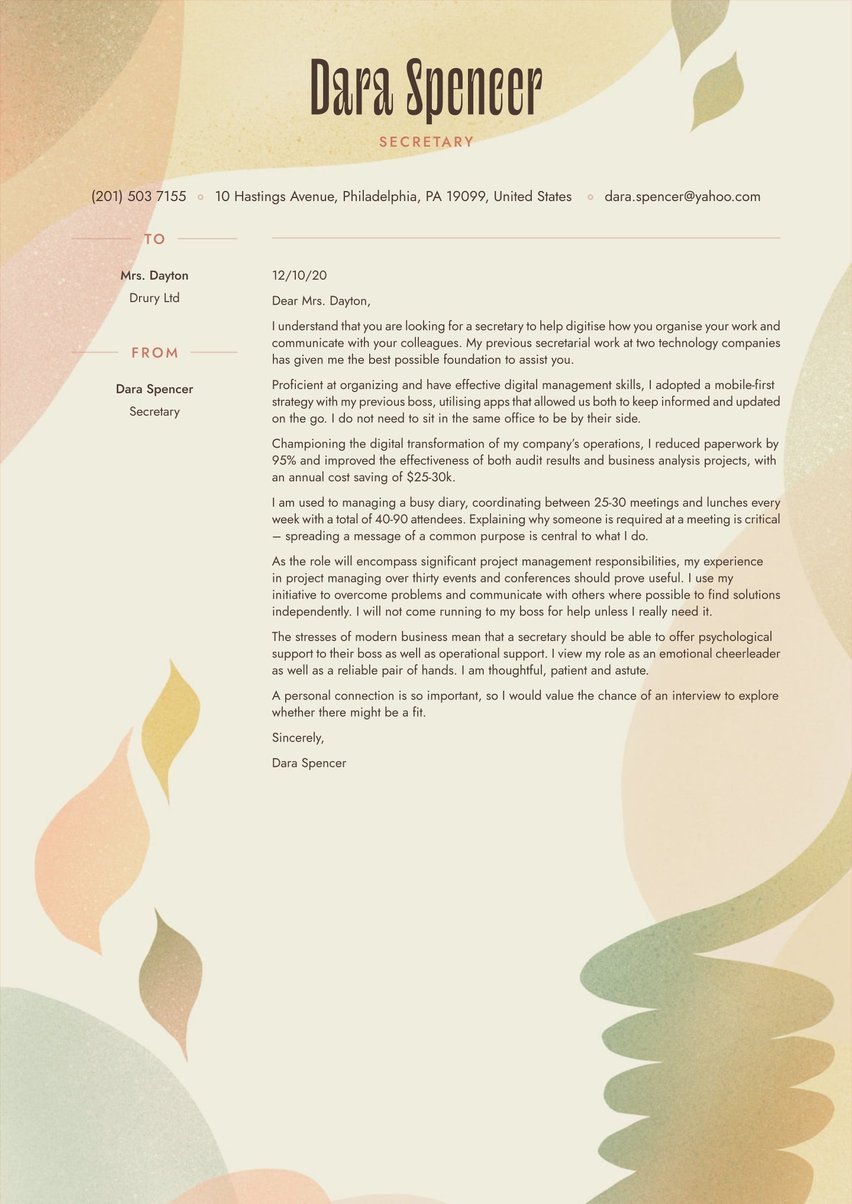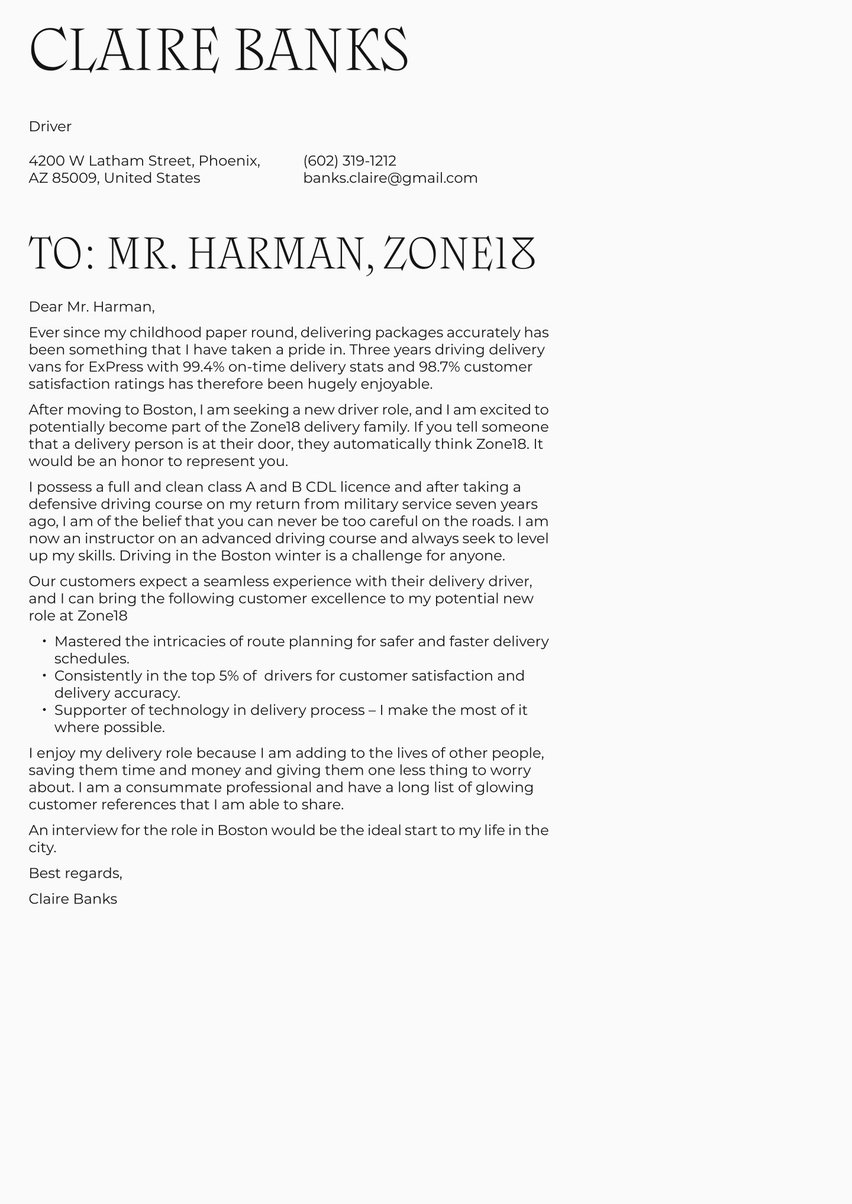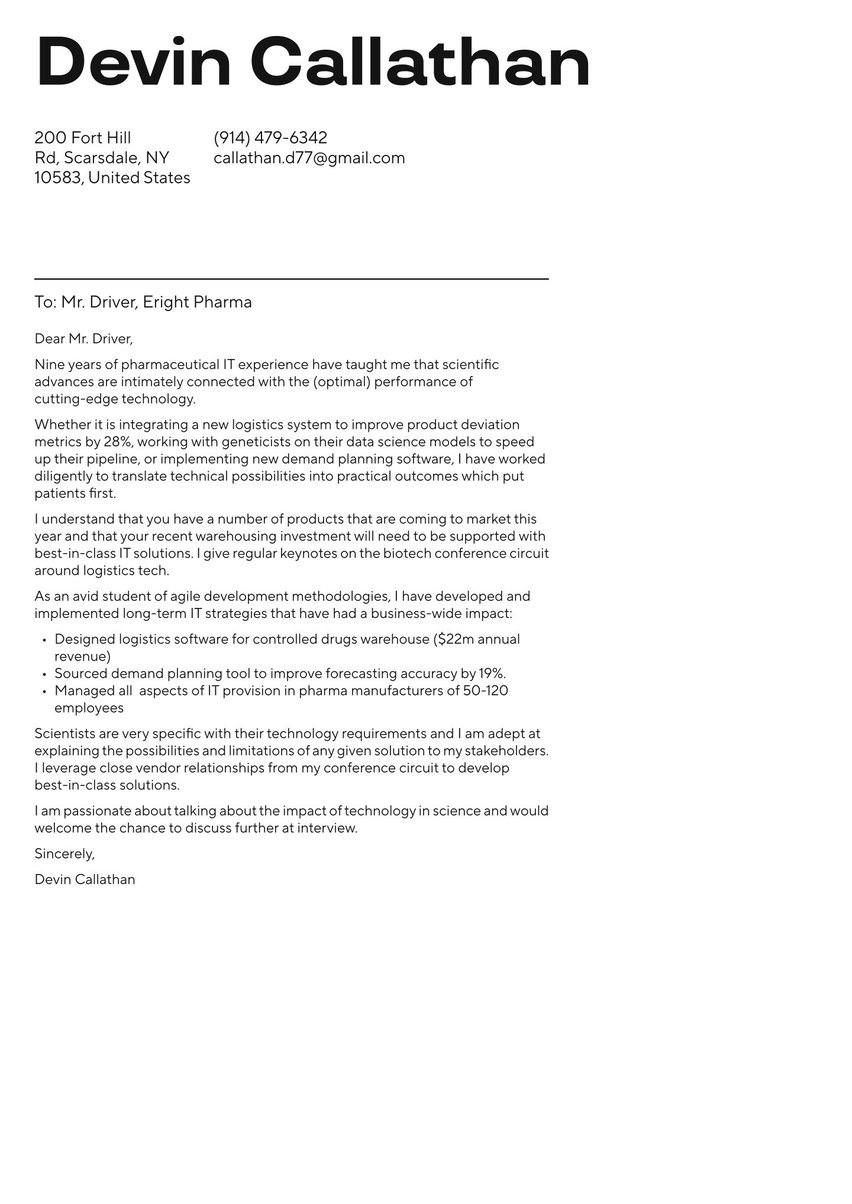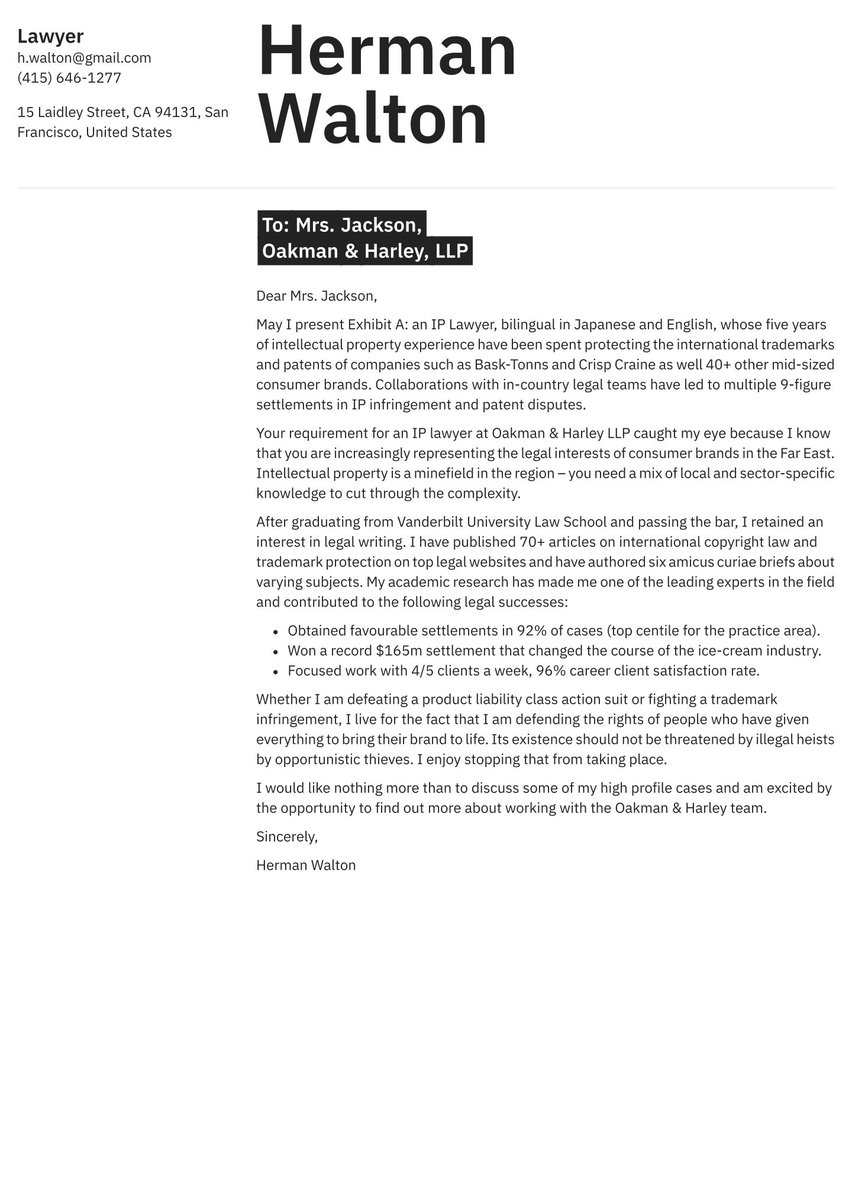College can be tough. Students embark on their educational journey as youngsters and — often enough — they lack a clear vision of their future. That’s where you come into the picture. An academic advisor acts as a mentor for these individuals, offering support when it comes to their educational, personal and professional development. If you’re up for the job, you will need a stellar academic advisor cover letter to help you open the door.
You’ve come to the right place. Here at Resume.io, we have everything that you need to enhance your job search. Our cover letter examples library contains letters for hundreds of different roles. If you’re struggling to gush about your academic experience on a one-page document, we can help you get it right. In the following guide and corresponding academic advisor cover letter example, we will cover:
- The best format for an academic cover letter (with a cover letter example)
- Advice for each section of this professional document
- Writing psychology tips on how to write a persuasive cover letter
- How to write a cover letter if you have no experience
- The basic mistakes you should avoid when writing this letter.
Best format for an academic advisor cover letter
Before you start writing your academic advisor cover letter, you need to know what elements to include. Going freeform on this letter is a mistake — you need to have structure. Much like our cover letter example, your format should include the following:
- The cover letter header
- The greeting/salutation
- The cover letter intro
- The middle paragraphs (body of the letter)
- The ending paragraph of your cover letter (conclusion and call-to-action)
Sticking to the above structure will help you stay on track. If you’re prone to meandering musings and long-form writing, allow the sections to guide you instead. You can get more information on how to format your application letter in our full cover letter guide here.
Cover letter header
The cover letter header may be the first thing that the employer sees when they glance at your application. It sits neatly above the body of your text and provides them with vital information about you. That is, your name, email, and phone number. Making sure that you’ve ticked all of these boxes is essential. If your word wizardry impresses the reader, they will be itching to pick up the phone and call you. Don’t make this hard for them.
By positioning your details front and center, you’re giving yourself the best odds. Now, you don’t need to do anything fancy with these lines. Keep them simple and ensure that they are easy to read. It may help you get with the Applicant Tracking System (ATS) to include the words “Name,” “Email,” and “Phone number” in front of each corresponding detail. However, the jury’s still out on whether that makes a real difference so it’s up to you.
Our academic advisor cover letter sample may give you an idea:
Dear Professor Wright,
Having worked as an academic advisor in modern languages for the past five years, I have enjoyed the variety of academic challenges. When you are helping students with the language, history, literature, and culture of over ten countries, you need to stay curious.
I enjoyed my experience supervising dissertations the most. When you are assisting with over 90 dissertations at any one time, you learn so much. My role is to guide and coach students to find the right questions. Teaching qualifications have helped in my work, but I found that it was a commercial coaching course that made the biggest difference. When students cannot find a way forward, you need to prompt them rather than guide them.
My previous employer was one of the first to measure the impact of academic advisors and I am proud to say that my students’ grades improved the most on average. I strove to develop close relationships with all of them and set firm expectations for guidance meetings to enable us to make the most of our time.
I have an ambition of doing some teaching in my next role and have considerable experience in leading seminars and teaching in smaller groups of 6-10. I know that your college has a track record of developing people internally and I hope that I would be a strong candidate.
I look forward to learning more about the opportunity during a potential interview. My knowledge of five languages and deep understanding of the subjects will prove useful.
Sincerely,
Ian Thomas
Cover letter greeting
Next up, it’s a formality. The cover letter greeting is how you say “howdy” to the hiring manager. Except you can’t say that — not exactly, anyway. This is a formal document, and so you need to adopt a professional tone when you are writing it. Get off on the right foot.
If you know the name of the hiring manager, address them directly. You might use “Dear Dr. Swift,” for instance. Of course, you may not always know their name. In that case, use your mastermind abilities, and do some detective work. You can call up the department — likely student services — and ask them who is in charge of appointing a candidate.
Can’t find out the hiring manager’s name? Go for “Dear _____ team” over the common “To whom it may concern.” The latter shows a lack of imagination and is considered old hat.
Cover letter introduction
You only have one chance to make a first impression. Go in there strong with a statement about why you are the best person for the job. You might want to focus on your prior experience as an advisor and the excellent reviews students gave you, for instance. Failing that, you could speak about your proven track record and note the colleges you’ve previously worked for. Think about what information will pique the reader’s interest here.
Take a look at our academic advisor cover letter sample:
Dear Professor Wright,
Having worked as an academic advisor in modern languages for the past five years, I have enjoyed the variety of academic challenges. When you are helping students with the language, history, literature, and culture of over ten countries, you need to stay curious.
Cover letter middle part (body)
The middle paragraphs of cover letters are where you can really sink your teeth into writing. You have the space to weave the narrative of your professional experience so far. Make sure that each paragraph you complete has a central point and provides evidence.
For example, the first body paragraph may share the training you have taken to support this role. In that case, you can speak about where you completed the training, what pushed you to start it, what you learned, and the results that you gained. Job done!
Another paragraph may be focused on the excellent advice you offer to students. You can include an example story — by way of evidence — about a time you helped a young person decide which major to take. You can outline the process and how you worked well with the student to uncover their long-term career goals. Be as specific as possible.
Flesh out the middle part of your cover letter with these examples and any supporting evidence that you have. These are the golden nuggets that you can’t include on your resume. However, by allowing them to shine now, you might secure yourself an interview.
I enjoyed my experience supervising dissertations the most. When you are assisting with over 90 dissertations at any one time, you learn so much. My role is to guide and coach students to find the right questions. Teaching qualifications have helped in my work, but I found that it was a commercial coaching course that made the biggest difference. When students cannot find a way forward, you need to prompt them rather than guide them.
My previous employer was one of the first to measure the impact of academic advisors and I am proud to say that my students’ grades improved the most on average. I strove to develop close relationships with all of them and set firm expectations for guidance meetings to enable us to make the most of our time.
I have an ambition of doing some teaching in my next role and have considerable experience in leading seminars and teaching in smaller groups of 6-10. I know that your college has a track record of developing people internally and I hope that I would be a strong candidate.
How to close an academic advisor cover letter (conclusion and sign-off)
The final lines of your academic advisor cover letter should be optimistic but not arrogant. Even if you think you’re the perfect candidate for the role, it may not do you any favors to state that. Let the hiring manager decide that for themselves. Instead, sign off by showing that you're eager to hear from the team. You might also want to include a quick Call To Action (CTA) asking them to reach out to you should they have any further questions.
I look forward to learning more about the opportunity during a potential interview. My knowledge of five languages and deep understanding of the subjects will prove useful.
Sincerely,
Ian Thomas
Writing psychology: how to grip the reader from start to finish
Academic advisor positions are all about showing empathy, offering guidance, and supporting students when they need it the most. That takes a real character!
When you’re writing your cover letter, allow your personality to shine through. Luckily, you can use some basic writing psychology to help you out. Read the following top tips:
- Show that you empathize with students’ experiences. You might want to draw upon when you were a student yourself and reflect on the advisor you had, for example.
- Use powerful action verbs in your cover letter. The reader is looking for a professional who gets results for the student body. Show that you have what it takes.
- Highlight the enthusiasm you have for supporting academics and why this is important to you. Do you have an anecdote that you could share? Perhaps there is a success story you can tell the hiring manager about your prior experience.
While the tone of your academic advisor cover letter should be formal, be mindful of the reader at all times. You are speaking directly to one person. What do they want to know about you and how can you best show off your expertise and experience here?
Our academic advisor cover letter sample may give you some inspiration:
Academic advisor cover letter with no experience
Looking to make a career hop into the world of academic advisory? Since hiring managers will be looking for professionals with a proven track record, you’re going to have to win them over. It’s not the impossible task you might imagine. Sure, you can’t wax lyrical about your previous roles, but that doesn’t mean you don’t have important information to share.
- Explain why you have decided this career path is right for you. What knowledge do you already have of academia and why do you want to forge a job here?
- If you have any experience offering consultations or guidance, shout about it now. You might not have worked as an academic advisor exactly, but have you worked in a field where the duties overlap? Highlight any transferable skills you have.
- Reflect on your time as a student. You may want to paint a picture of your academic experience and detail how having the right advisor either changed (or could have changed) your particular trajectory for the better.
Keep in mind that everyone has to start somewhere. You might not have oodles of experience right now. However, if you write a persuasive academic advisor cover letter, you might have a chance of landing that all-important interview or maybe even the job.
Basic mistakes in an academic advisor application letter (and how to avoid them)
By now, you already know what it takes to write an academic advisor cover letter. We’ve talked about what to do… but what about what not to do? There are some basic mistakes you could make that will cost you the interview. Here’s what you need to avoid:
- Spelling mistakes. You’re applying for a role at a college, and so the hiring manager will expect your spelling and grammar to be on point. You can use a spell checker, like Grammarly or Hemingway App, to ensure the letter is perfect.
- Writing too much. Yes, you might have a whole load to say about your professional experience. Great stuff. However, trying to cram TMI into your cover letter is a mistake. As a general rule, keep it to around the 300-word mark.
- Using technical jargon. When you’re applying for any academic role, you may be tempted to show off your fancy-pants lexicon. That’s all very well and good… except if you end up alienating the hiring manager. Keep it simple.
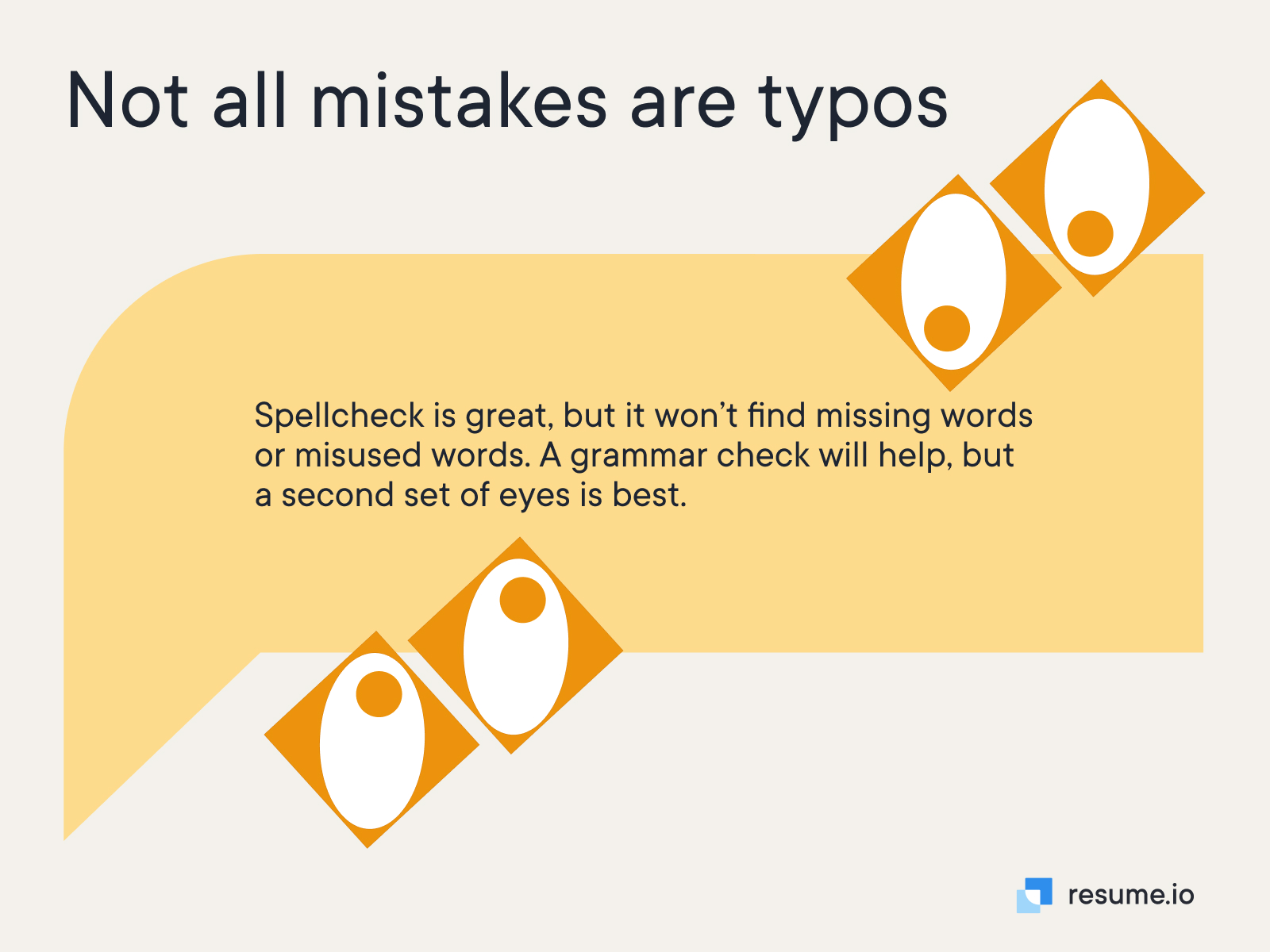
Before you hit that “send” button, make sure that you have proofread your cover letter. You can never be too thorough when it comes to this document. It may be read by a few team members before a call is made. For that reason, you want it to be absolutely flawless.
Key takeaways
- Academic advisors work one-on-one with students offering support and guidance. Make sure that your cover letter conveys the experience and empathy you have.
- The tone of your cover letter should be formal. However, you want to steer clear of any over-the-top jargon. Make your letter accessible to the reader.
- Weave in any anecdotes or success stories that showcase your advisory abilities!
- Make the whole writing process easy by using one of our cover letter templates.
Looking for some more inspiration? We’ve got you covered. Check out our similar academic and education-based cover letter examples:


